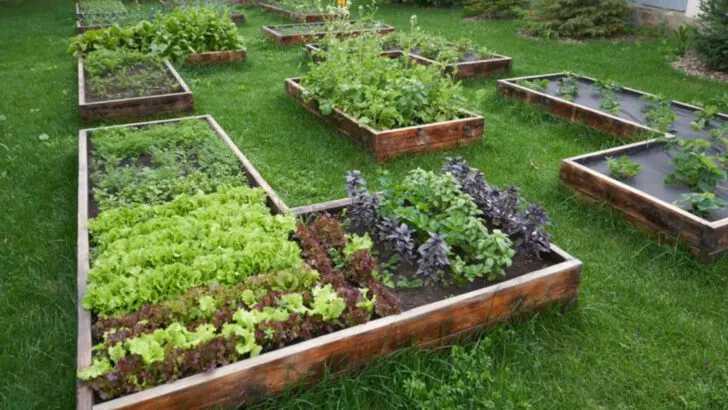Gardening doesn’t have to mean spending a small fortune on soil, tools, and supplies every season. In fact, some of the best habits in the garden are the ones that stretch your budget and cut down on waste at the same time. It’s about using what you’ve already got, being a little more mindful, and getting creative with the scraps most people throw away.
You don’t need to go fully off-grid or start composting in a fancy tumbler to make a difference. Small shifts, like reusing rainwater or repurposing old containers—can add up without making gardening feel like a second job. These tips are all about working with what you have and making your space more self-sufficient along the way.
Compost Your Scraps
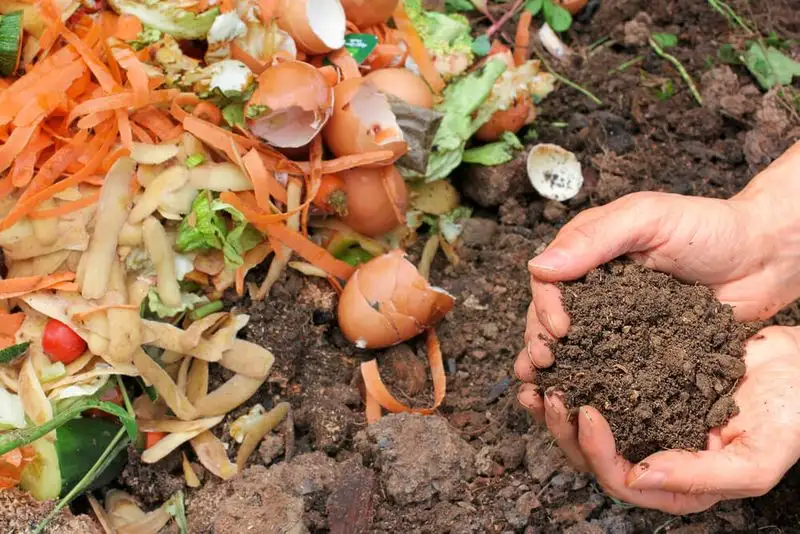
Ever wondered what to do with those kitchen scraps? Turning them into compost is not only beneficial for the environment, but it also enriches your garden soil. Simply gather vegetable peels, fruit rinds, and yard waste to create a nutrient-rich compost. This process reduces landfill waste and provides a natural fertilizer for your plants.
By composting, you decrease the need for chemical fertilizers and enhance plant growth. It’s a small step that leads to big environmental rewards. Start your compost bin today and watch your garden thrive with this eco-friendly practice.
Rainwater Collection
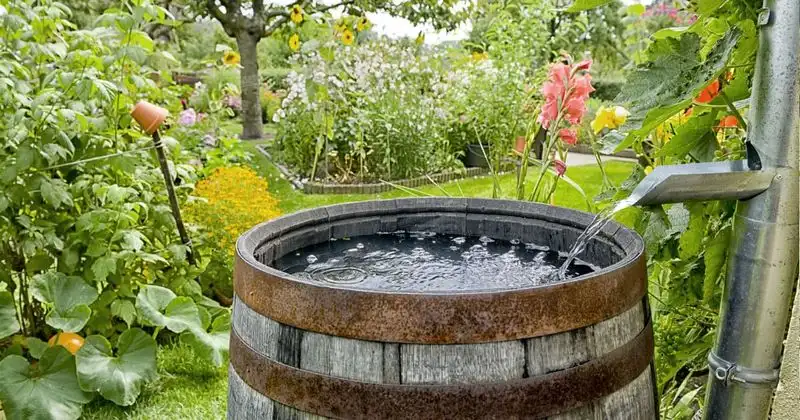
Harness the power of nature by collecting rainwater to use in your garden. Installing rain barrels can significantly reduce water usage and lower utility bills. This eco-conscious practice makes use of rainwater that would otherwise go to waste.
Rainwater is naturally soft and free of salts and chemicals, making it an excellent choice for watering plants. By using collected rainwater, you contribute to water conservation efforts while nurturing your garden. Embrace this sustainable practice and enjoy a flourishing garden with minimal environmental impact.
Plant Native Species
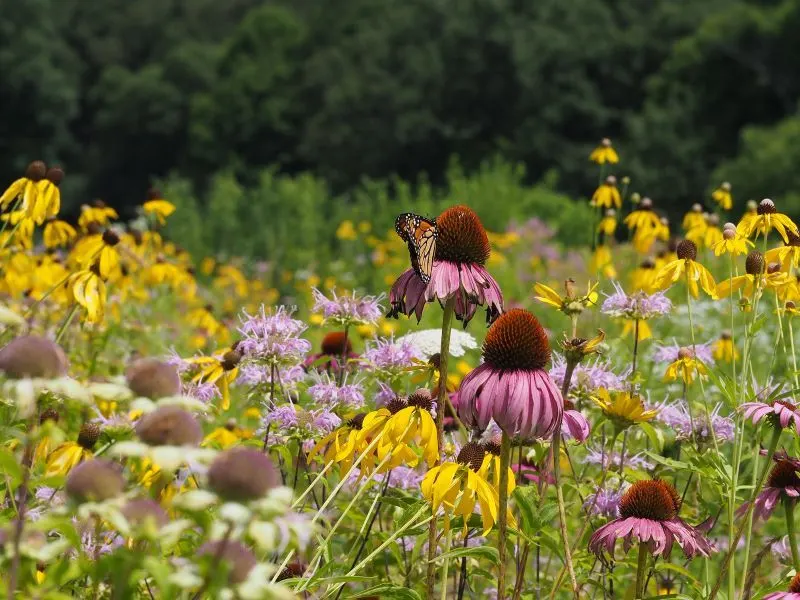
Did you know native plants are superheroes in the garden world? They adapt to local conditions, require less water, and support local wildlife. By planting native species, you reduce the need for fertilizers and pesticides, as these plants are better suited to the environment.
Native plants also promote biodiversity and attract beneficial insects like bees and butterflies. This natural harmony enhances the beauty and health of your garden. Turn your garden into a sanctuary for local flora and fauna with native species, and watch it flourish.
Use Mulch Wisely
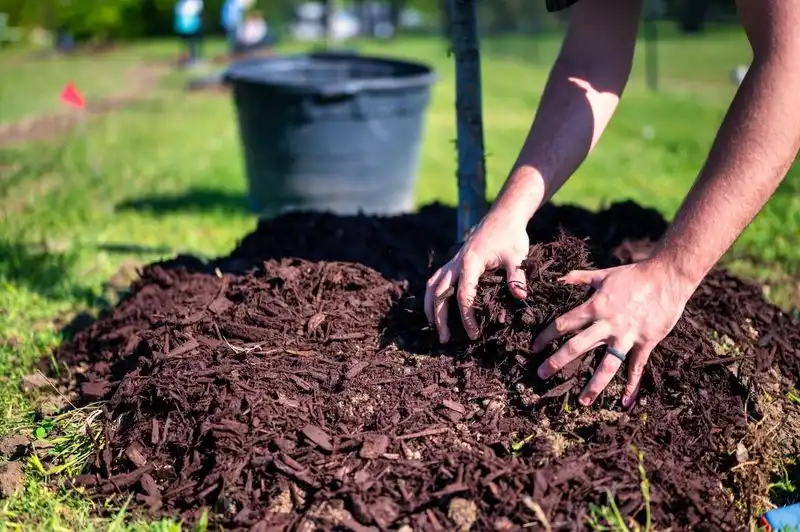
Mulch is your garden’s best friend, helping retain moisture and suppress weeds. By using organic mulch, such as wood chips or straw, you enhance soil quality and reduce the need for chemical herbicides. This natural barrier protects plant roots and improves soil structure over time.
Mulching not only conserves water but also reduces garden maintenance efforts. Make mulch a staple in your gardening routine and enjoy lush, healthy plants. This simple act contributes to a sustainable garden environment, saving you money and time.
Repurpose Old Containers
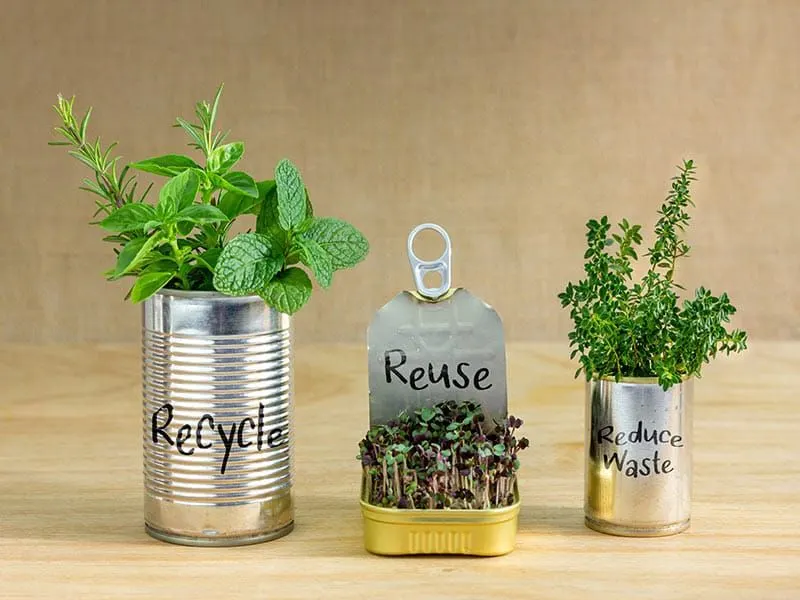
Why buy new pots when you can repurpose old containers? Transforming items like old boots, teapots, or buckets into unique planters adds character to your garden. This creative approach reduces waste and saves money on garden supplies.
Repurposing containers encourages creativity and sustainability, allowing you to personalize your garden space. Each planter becomes a conversation piece, showcasing your commitment to eco-friendly practices. Start collecting old containers and give them a new life in your garden.
DIY Garden Tools
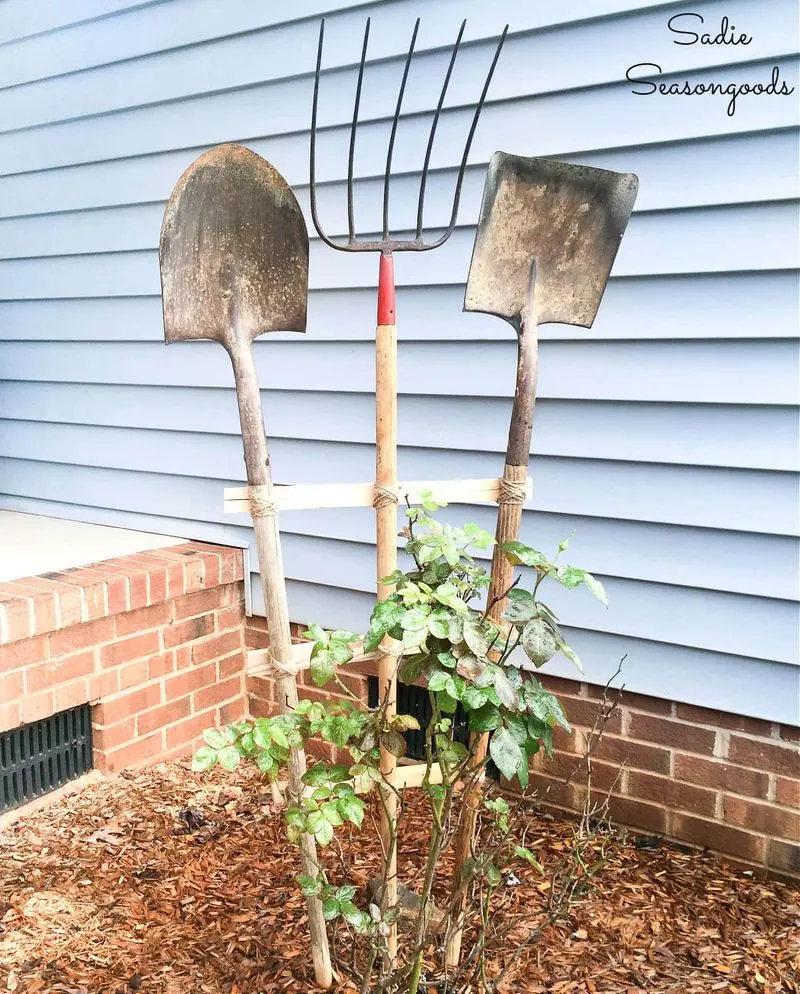
Crafting your garden tools from recycled materials is a rewarding and sustainable practice. Not only does it reduce waste, but it also adds a personal touch to your gardening experience. Use old metal cans, broken handles, or discarded household items to create functional tools.
These DIY tools can be tailored to your specific gardening needs, offering a cost-effective solution. Embrace this eco-friendly approach and enjoy the satisfaction of gardening with tools made by your own hands.
Create a Wildlife Habitat
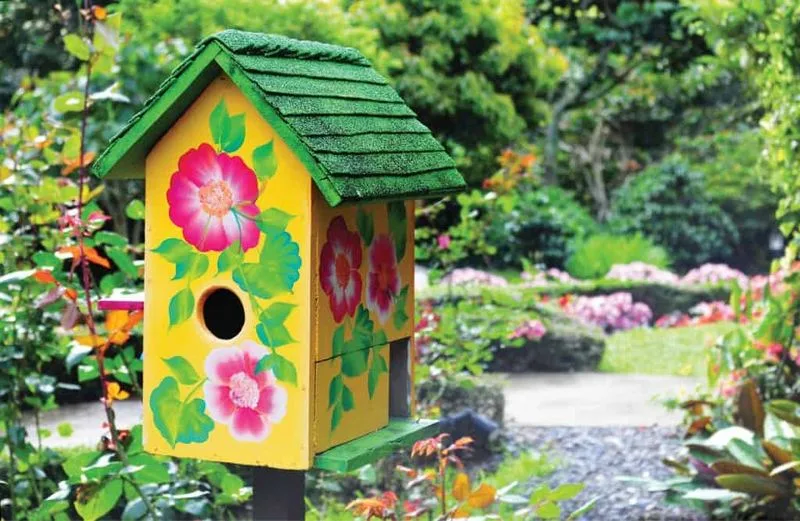
Transform your garden into a haven for wildlife by adding birdhouses, bee hotels, and a small pond. These features attract birds, bees, and other beneficial creatures, promoting biodiversity. By providing food, water, and shelter, you support local ecosystems and enhance your garden’s vitality.
Creating a wildlife habitat fosters a balanced environment, reducing the need for chemical pest control. This natural approach ensures a thriving garden that’s in harmony with nature. Invite wildlife into your garden and enjoy the beauty and benefits they bring.
Practice Crop Rotation
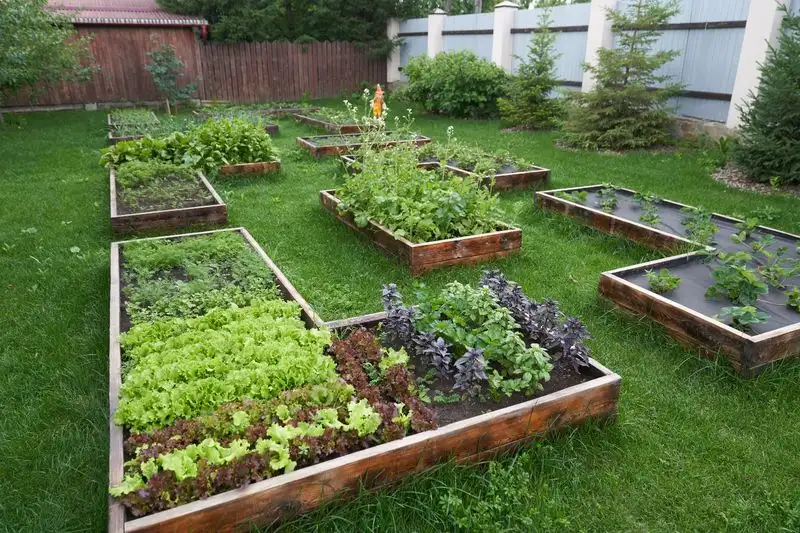
Crop rotation is a time-tested gardening technique that maintains soil health and reduces pest problems. By rotating crops each season, you prevent soil nutrient depletion and break pest cycles. This practice minimizes the need for chemical fertilizers and pesticides.
A well-planned crop rotation strategy enhances soil fertility and boosts plant resilience. It’s a sustainable approach that supports a productive garden year after year. Implement crop rotation in your garden and reap the benefits of healthy, abundant harvests.
Install Solar Lighting

Brighten your garden with solar-powered lighting, an eco-friendly alternative to traditional lights. Solar lights harness sunlight during the day and illuminate your garden at night, reducing electricity usage. This sustainable choice saves money on energy bills and adds ambiance to your outdoor space.
Solar lighting is easy to install and requires minimal maintenance. By choosing solar, you enhance your garden’s beauty while supporting renewable energy efforts. Light up your garden sustainably and enjoy the glow of eco-conscious illumination.
Grow Herbs Indoors
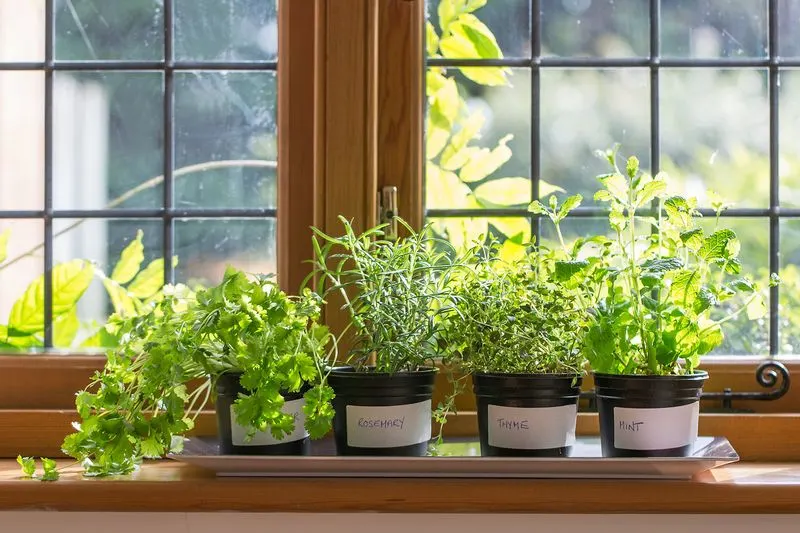
Growing herbs indoors is a delightful way to enjoy fresh flavors year-round while reducing food waste. Herbs like basil, thyme, and rosemary thrive in sunny spots and require minimal space. This indoor gardening project is perfect for small spaces and can save money on grocery bills.
By cultivating your own herbs, you have a fresh supply at your fingertips, enhancing your culinary creations. Embrace this sustainable practice and bring the joy of gardening into your home.
Natural Pest Control
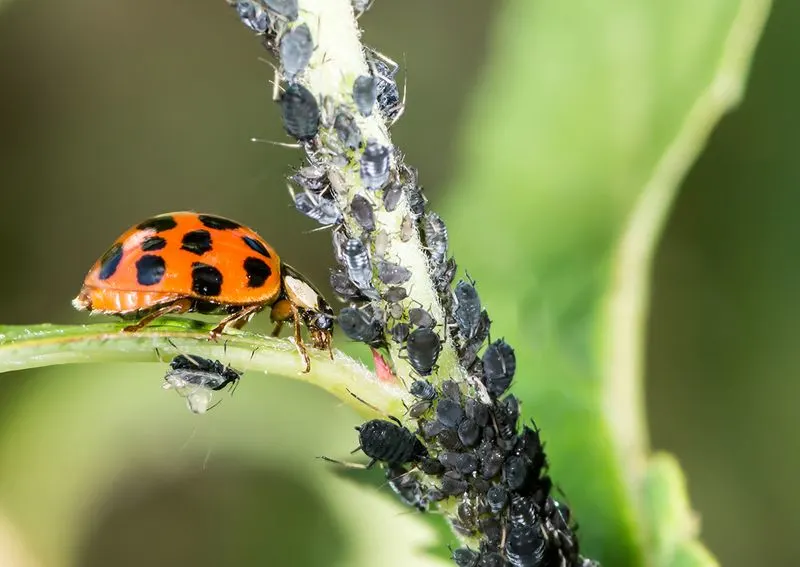
Tired of battling pests with harsh chemicals? Embrace natural pest control by encouraging beneficial insects like ladybugs and incorporating companion plants. These natural defenders help manage pest populations effectively without harming the environment.
Companion planting, such as pairing marigolds with tomatoes, deters pests and promotes plant health. This eco-friendly approach maintains a balanced garden ecosystem, reducing the need for synthetic pesticides. Opt for natural pest control and protect your garden the green way.
Vertical Gardening
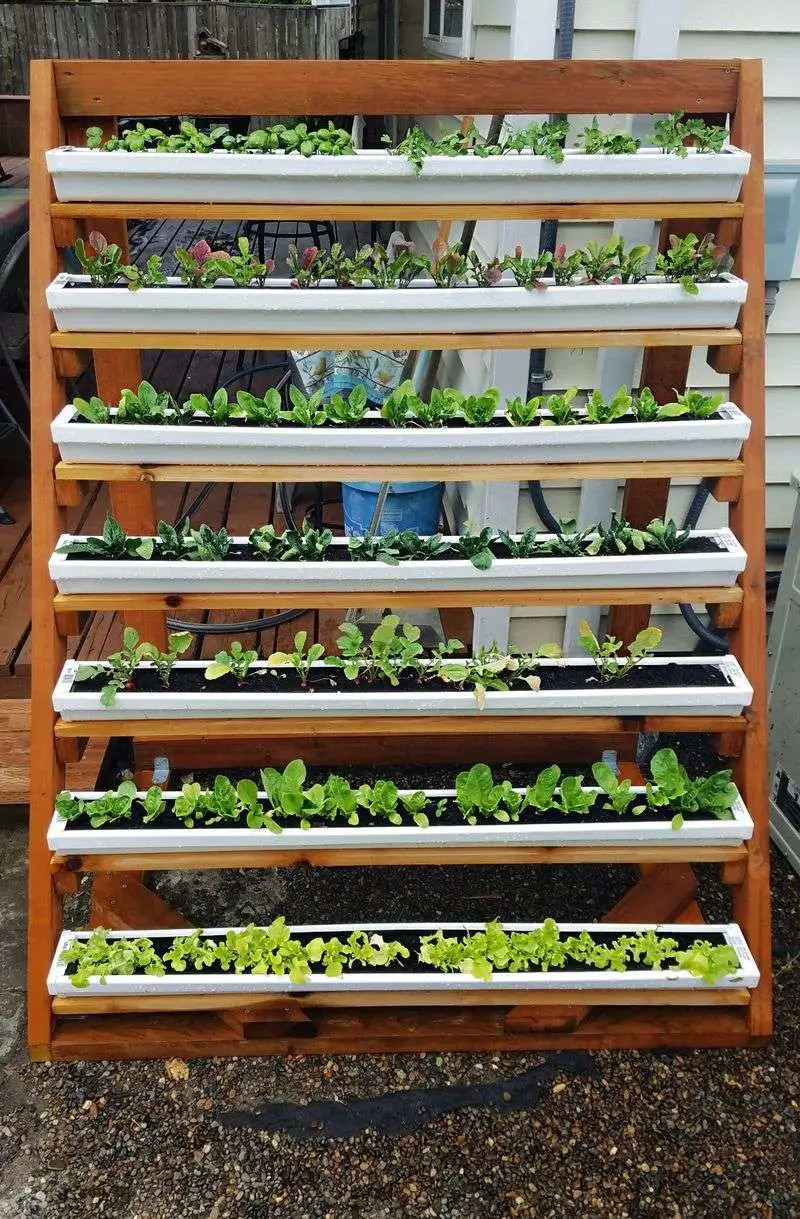
Maximize your gardening space by going vertical. Vertical gardens allow you to grow plants upward, making efficient use of limited space. This method is ideal for small gardens or urban settings, providing an opportunity to grow more without needing additional ground area.
Vertical gardening enhances air circulation and reduces soil-borne diseases. It adds a dynamic visual element to your garden, showcasing creativity and innovation. Transform blank walls into lush, green landscapes with this space-saving technique.
Bamboo Garden Stakes
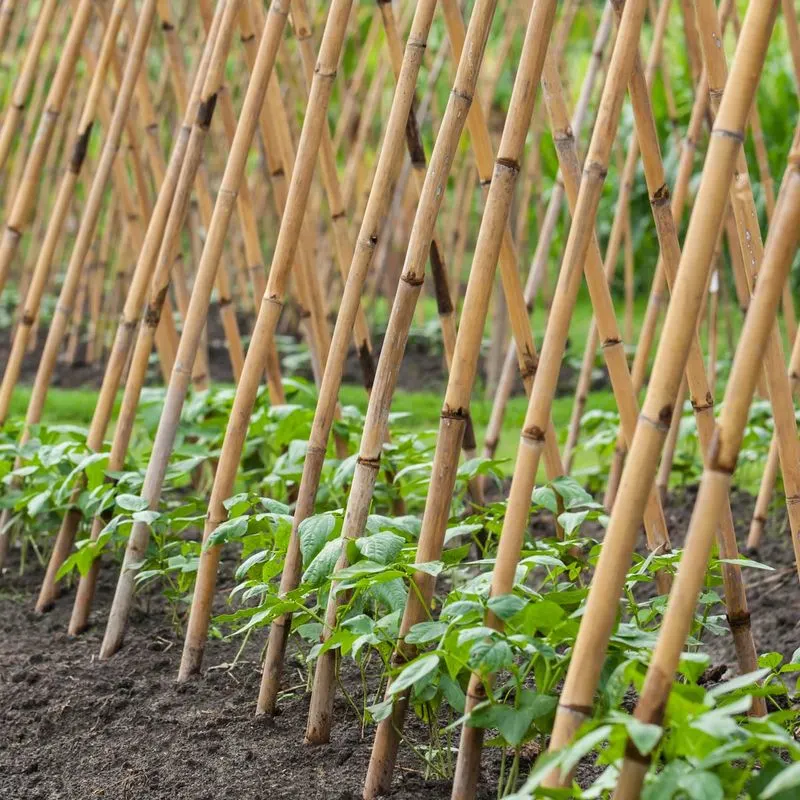
Bamboo is a sustainable and versatile material for garden stakes. These stakes provide sturdy support for climbing plants like beans and tomatoes. Bamboo’s rapid growth and renewable nature make it an eco-friendly alternative to plastic or metal stakes.
Using bamboo enhances your garden’s sustainability, aligning with eco-conscious gardening practices. Its natural aesthetic blends seamlessly into garden landscapes, adding charm and function. Choose bamboo stakes for a greener approach to supporting your plants.
Edible Landscaping
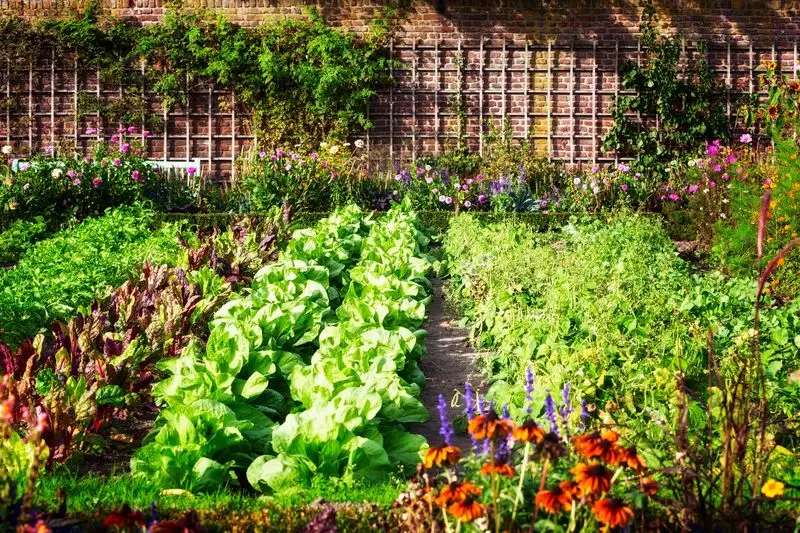
Combine beauty and functionality with edible landscaping. This creative approach incorporates edible plants into your garden design, providing food and visual appeal. Fruit trees, vegetables, and herbs can be integrated into flower beds and borders, offering a bountiful harvest.
Edible landscaping reduces grocery bills and supports sustainable living. It encourages homegrown produce, reducing reliance on store-bought goods. Transform your garden into a productive paradise with this innovative and eco-friendly concept.
Perennial Vegetables
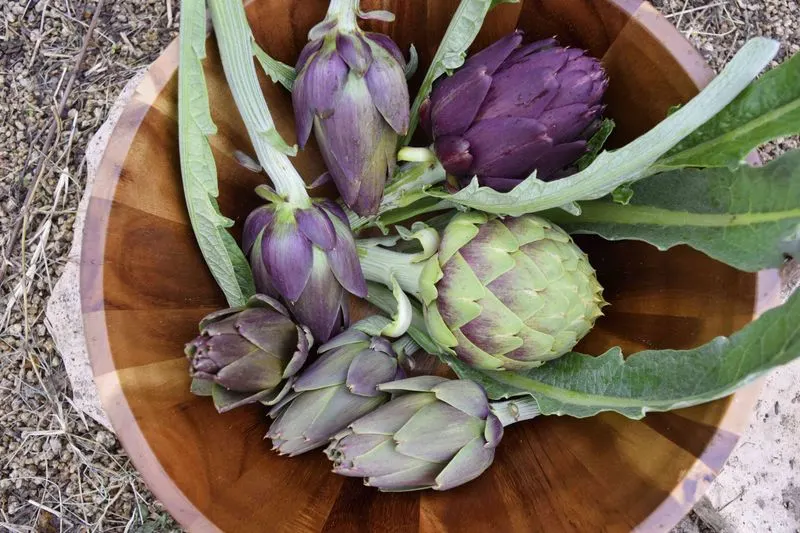
Perennial vegetables offer a sustainable gardening solution, providing harvests year after year with minimal replanting. Veggies like asparagus and rhubarb return each season, reducing planting efforts and soil disturbance. This practice conserves resources and promotes a resilient garden ecosystem.
By choosing perennials, you enjoy consistent yields and a low-maintenance garden experience. These hardy plants enrich your garden’s diversity and sustainability. Explore the benefits of perennial vegetables and cultivate a garden that’s both productive and environmentally friendly.

